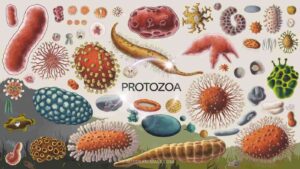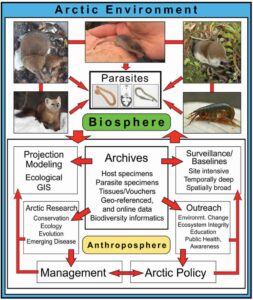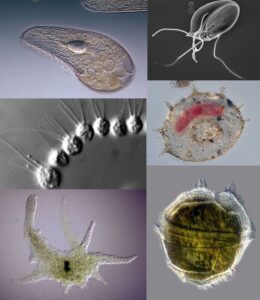Back to: ZOOLOGY 200 Level
You’re doing absolutely well, and it’s great to have you back for another enlightening lesson. Today, we’re focusing on something microscopic yet incredibly important—Ecological Importance and Parasitism in Protozoans. Though protozoans are tiny, their influence in the ecosystem and on human health is massive. Let’s unpack what makes them so impactful.
Ecological Importance And Parasitism In Protozoans
Ecological importance of protozoans
Protozoans are single-celled organisms found in almost every environment—freshwater, saltwater, soil, and even inside other living organisms. Despite their size, they play a big role in maintaining ecological balance.

In aquatic ecosystems, protozoans are essential parts of the food chain. They feed on bacteria and algae, and in turn, are eaten by small fish and other aquatic animals. This makes them key players in nutrient cycling and energy transfer. For example, in a Nigerian river ecosystem, protozoans help keep bacterial populations in check and support the diets of fish larvae.
Protozoans also help decompose organic material, breaking down dead plants and animals into simpler nutrients that enrich the soil or water. This makes them important in both soil fertility and water quality management.
Some protozoans live in the guts of animals like termites and help them digest tough plant materials like cellulose. Without them, many herbivorous animals would struggle to get enough nutrition.
Parasitism in protozoans
While some protozoans are helpful, others cause diseases by living as parasites inside humans and animals. Parasitic protozoans rely on their hosts for survival, often harming them in the process.

One well-known example is Plasmodium, the protozoan that causes malaria. It is transmitted to humans through the bite of an infected female Anopheles mosquito. In Nigeria and across Africa, malaria remains a major public health challenge, especially in rural communities.
Another example is Trypanosoma, which causes African sleeping sickness and is transmitted by the tsetse fly. There’s also Entamoeba histolytica, responsible for amoebic dysentery, which spreads through contaminated water and food.
These diseases affect millions of people and livestock, impacting health, productivity, and economic development, especially in tropical regions.

Summary
Protozoans have major ecological roles—they control bacterial populations, support aquatic food chains, aid decomposition, and even assist digestion in some animals. However, some species cause serious diseases in humans and animals, such as malaria and amoebic dysentery. Understanding their dual nature helps us appreciate their ecological value while also being prepared to control the harm they can cause.
Evaluation
- State two ways protozoans contribute to ecosystems.
- Mention two diseases caused by parasitic protozoans.
- What role do protozoans play in the diet of small aquatic animals?
- How does Plasmodium affect human health?
You’ve just learned how even the tiniest life forms can shape ecosystems and affect millions of lives. Keep going strong—you’re building a solid foundation in Zoology that’ll take you far. Afrilearn is proud of your progress and ready for what’s next!
